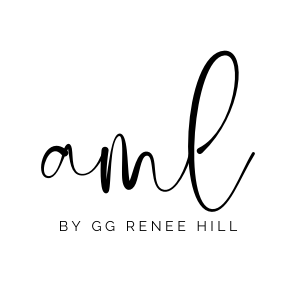is your identity attached to your struggle?
I have not gone a day in my life without clean water, food, or shelter, but I have always had a preoccupation with struggle: a fear of not being enough, not having enough, and what I do have being taken away.
My first memories of struggle began with my mother’s mental health decline which was later diagnosed as schizophrenia. Confronting this slow, mysterious kind of loss at a young age bent my reality completely out of shape. Early on, I decided that life is one struggle after the next, and you never know what’s coming, so you need to keep your guard up.
Many of the costly decisions I made in my early adulthood were attempts to make things happen in my time and in my way, because I didn’t trust life to provide the outcomes I wanted. When your identity is formed in an unstable environment where you feel like a victim with no voice or control, it’s difficult to recognize your inner power as you come of age. You think that if you don’t cling to what you have, you will lose it; and if you don’t force what you want, you won’t get it; and this attachment to control becomes a source of the suffering you are trying to avoid.
Everyone has difficult seasons in their lives, but when some part of you believes that struggling makes you worthy, when you think that it’s your only option, life becomes a series of fires that you are always racing to put out. It is often when everything is about to go up in flames that we finally consider that there could be another way.
What if life doesn’t have to feel like a constant fight to survive? What if you’re not destined to struggle, even if that is all you’ve known? What if no matter where you begin or what obstacles you face, you can change your story by changing the way you think?
The struggles that shaped you don’t have to define you.
I grew up watching my mother lose touch with reality and distance herself from everyone she loved. My family didn’t talk about it, so neither did I. I swallowed my fear and braced myself as her paranoia intensified, as she became increasingly suspicious of me, and life as I knew it changed.
There was no other way to deal than to push through it, dreaming of the day that I would get away and leave it all behind. But no matter where I went, the shadow came with me. The unexamined shame, guilt, and regret created self-destructive patterns that showed up in my relationships, jobs, finances, and health habits. Deep down I knew that the fulfilling life I wanted could only be realized through the inner work that I was avoiding.
By numbing our pain, we also numb our joy. By closing ourselves off, we develop limiting beliefs that diminish our sense of self and distract us from hearing what our hearts want to say. This affects how we experience the world, how safe we feel to grow and change, how freely we express ourselves.
When you sit in reflection and start being open with all parts of yourself, you can discover patterns of stress, struggle and survival that are playing out in various ways in your life. These patterns start with your thoughts and beliefs.
For example, you might expect unfair things to happen to you because they happened to your family or your ancestors before. You might react to uncomfortable situations reflexively, even if you know the reaction is destructive, because you believe that this is just ‘how you are.’ You might feel victimized due to unhealed trauma from earlier in life, and this wounded energy can affect everyday situations causing you to feel defensive and edgy.
When you move through life in a reactive way, the past perpetuates the future, and it creates a storyline that you come to expect. Because you keep thinking, believing, and doing the same things, your actions keep bringing about similar results. In the words of writer Richard Bach, “Argue for your limitations, and sure enough they’re yours.”
Because of the creative connection between thoughts, beliefs, and actions, the way you think sets the stage for how you experience life. With a shift in consciousness, a difficult past can become more than something painful that didn’t kill you. It can become a reference point for something hopeful and transformative.
You can believe that you are weakened by what you’ve been through or strengthened by it, and what you think will be true. It’s as logically simple — and as emotionally complicated — as that.
Are you ready to reclaim your story?
For the past 15 years, writing has been my healing practice, the alchemy that has turned pain into purpose. I’ve shared pieces of my story and received emails and messages from people all over the world — who grew up with a mentally ill parent or family member like I did — and have struggled to find peace in their lives as adults. They share their stories with me and ask if I have any advice to help them cope.
When fear was at the forefront of my mind, I underestimated the power of my experience. I thought: Who am I? Look at how messy my journey has been. Who cares what I have to say?
I’d forgotten how much I longed for true stories when I was not living mine. How much I looked for a clear reflection when my identity was blurry. At my lowest moments, I craved testimonies about the hopeless person finding hope, the lost person finding their way home. Raw stories of awakening and transformation. I didn’t want the generic band-aid of self-help or the sterility of science in those desperate, soul-searching days. Stories were my lifeline.
Vulnerability researcher and author Brené Brown said, “One day you will tell your story of how you overcame what you went through and it will be someone else’s survival guide.” When someone tells the story of their struggle, they offer a lifeline to someone else and a ripple effect of healing. In that spirit, I’ve made it my mission to help people discover and share their stories, working to bridge the emotional obstacles between inner reflection and outer expression.
If you’re ready to detach your identity from your struggle and reclaim your life, consider this an invitation to start by sharing your story.
Whether you write it and share it online, or offer it up as testimony at a church or support group meeting, it doesn’t matter. Once you set the intention and open your heart, the opportunity will present itself in time, so pay attention.
By finding the language and courage to share your story, you are creating momentum around your healing and changing the narrative that lives in your head. You’re creating new, positive memories around old stories that once held you down. You are changing the energy inside and around you from shame and guilt to truth and hope.
Out of all the healing practices that I credit my peace and growth to, storytelling has been the most healing and energizing of all.
No matter where you begin or what struggles you face, life can be expansive, abundant, and full of creative potential. Even if you are navigating difficult long-term circumstances, it’s possible to find purpose and thrive.
…
If you have stories you want to tell and don’t know where to start, consider subscribing to my newsletter and joining me for an upcoming workshop.

